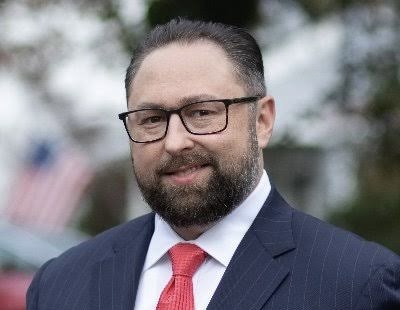Special envoy to AAM2025 – Abuja
In a packed room at the Transcorp Hilton in Abuja, at the heart of the 32nd Annual Meetings of Afreximbank, Jason Miller, former communication strategist for Donald Trump, delivered a sharp – sometimes unsettling, often impactful – vision of the future relations between Africa and the United States. It was neither a diplomatic speech nor a conventional address, but a political statement tinged with an assumed commercial strategy: for Miller, it is no longer the time for promises, but for partnerships.
Trump’s former advisor begins by outlining a continent on the verge of takeoff. By 2050, Africa will surpass Europe to become the third largest global economic bloc. By 2100, four of the ten most populous countries on the planet will be sub-Saharan. “This is Africa’s century,” he asserts. But he immediately warns: without clear strategic choices, this potential could once again be squandered by external actors with dubious intentions.
Without directly naming them, Miller takes a direct hit at decades of unfulfilled commitments, resource extraction, and “debt diplomacy.” China? The allusion is clear. International financial institutions? Probably as well. In the geopolitical landscape he sketches, the United States presents itself as the partner of realism, private investment, and mutual respect.
Three pillars structure his message to African leaders:
- Tangible investments, not conditional aid.
Miller urges African states to prefer FDI over concessional loans. He talks about roads, ports, data centers, clean energy, and critical minerals as levers of a new industrial revolution centered on AI. - Fundamental reforms.
Monetary stability, contractual transparency, and the fight against corruption: these are the “entry rights” to hope to attract American financial giants like BlackRock or CalPERS. In this regard, he applauds the “courageous” reforms carried out in Nigeria. - Selected alliances.
Miller contrasts American presence with that of Beijing. On one side, PEPFAR, counterterrorism, and diplomatic mediation; on the other, “illegal fishing, ecological disasters, and debt traps.” The message is clear: partnerships are measured by actions, not slogans.
AGOA, DFC, Trump: the strategic toolbox
Facing uncertainty around the renewal of AGOA, scheduled for September 2025, Miller argues for a refoundation based on reciprocity. Why, he asks, maintain unilateral advantages for partners who tax American products or sign massive deals with China? The message is clear: Africa must lay its cards on the table, project against project.
He also defends Trump-era tariffs as levers of economic sovereignty, and praises the strategic role of the Development Finance Corporation (DFC), the US government’s financial arm for profitable investments – not toxic loans. Among the examples cited: the Lobito corridor or investments in natural gas in Mozambique.
Advice to African leaders: be prepared, be direct
In a very “dealmaker” style, Miller delivers a series of almost raw recommendations to the present heads of state and ministers:
- Prepare for your meetings with Trump by following his Truth Social account.
- Forget the photo ops: come with concrete requests and quantified arguments.
- Act like Saudi Arabia or the Emirates: move forward with solid projects, and you will receive presidential honors.
- Mobilize CEOs, not just ambassadors.
Final act: one more strategic advisor for Africa?
The session ends with an announcement: Miller is joining Gateway Partners as a senior strategic advisor. This appointment is not by chance. The implicit message is strong: he intends to be a conduit for American capital to Africa. And his closing words speak volumes:
“Do not settle for speeches. Demand partnerships. This is how Africa will become powerful, wealthy, and sovereign. On its own terms.”
This intervention may herald a new era of transatlantic relations – where partnership replaces rhetoric, where private investment takes precedence over public aid, and where Africa no longer has to choose between two powers, but between two models. However, this requires being strategic, reformist, and without naivety.


